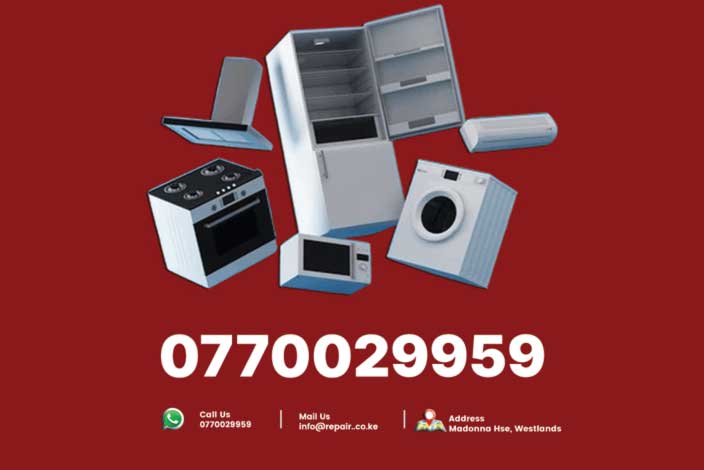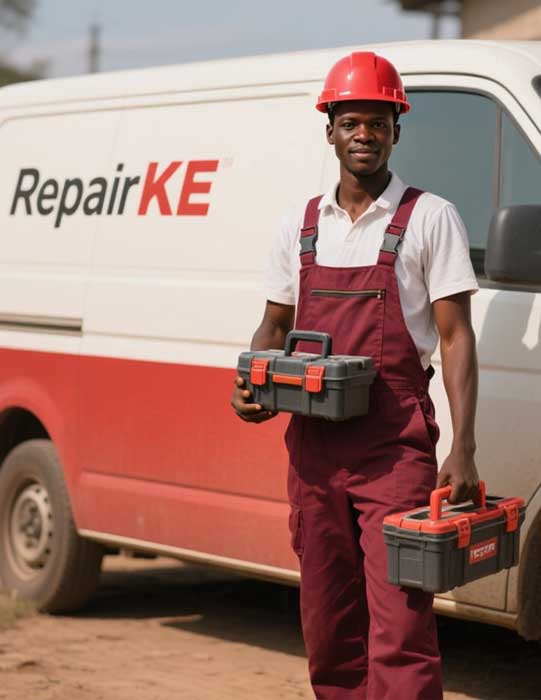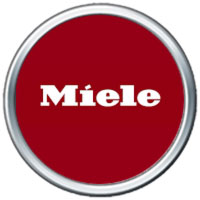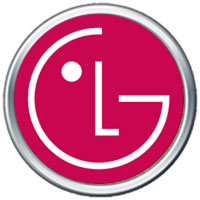Portable Washing Machines, How They Look & Function
Portable washing machines are small, lightweight devices designed for easy laundry in small spaces. Repair.co.ke offers repair and maintenance services for these machines in Kenya. They are popular in apartments, dorms, and homes with limited space. These machines wash clothes efficiently without needing large, permanent setups like traditional washing machines.
Portable washing machines come in different designs. Most are compact, about 2 to 3 feet tall and 1.5 to 2 feet wide. They weigh between 20 to 50 pounds, making them easy to move. Many have wheels for rolling across floors. The body is usually plastic or lightweight metal, often in white, gray, or black colors. Some models have a single tub for washing and spinning, while others have two tubs—one for washing, another for spinning. The control panel is simple, with knobs or buttons for selecting wash cycles, water levels, and spin settings.
Single-tub models are smaller and combine washing and spinning in one compartment. Dual-tub models separate washing and spinning, allowing more control. Top-loading designs are common, with a lid to add clothes. Some models have a transparent lid to see the washing process. Others include a digital display for timers and settings. Handles or grips on the sides make moving easier.
Portable washing machines work by filling the tub with water, adding detergent, and loading clothes. Most connect to a standard kitchen or bathroom faucet using a hose included with the machine. Water flows into the tub, and the machine agitates clothes to clean them. Wash cycles last 10 to 30 minutes, depending on the setting. After washing, the water drains through a hose into a sink or bucket. For single-tub models, the same tub spins clothes to remove water. Dual-tub models transfer clothes to a separate spin tub.
The capacity of portable washing machines is small, usually 5 to 15 pounds of laundry. This suits small loads like a few shirts, pants, or bed sheets. They use less water and electricity than full-size machines, saving money. Most run on standard 220-240V outlets, common in Kenya. Some models have a built-in pump to drain water, while others rely on gravity.
Repair.co.ke sees common issues like leaks, motor failures, or broken control panels. Leaks often come from loose hoses or worn seals. Technicians check connections and replace damaged parts. Motor problems cause the machine to stop agitating or spinning. Repair.co.ke replaces or repairs motors to restore function. Control panel issues, like unresponsive buttons, may need circuit board repairs or replacements. Regular maintenance, like cleaning the tub and checking hoses, prevents breakdowns.
Portable washing machines have different features. Basic models offer simple wash and spin cycles. Advanced models include timers, multiple wash programs, or delay-start options. Some have a lint filter to trap debris, which needs regular cleaning. Others include a soak function for heavily soiled clothes. High-end models may have stainless steel tubs for durability, while budget models use plastic.
These machines are easy to store. Many fit under counters or in closets. Some have foldable handles or removable hoses for compact storage. They are ideal for small households, students, or campers. In Kenya, brands like Von Hotpoint, Ramtons, and Haier are popular for portable washing machines. Repair.co.ke services all these brands, ensuring quick fixes for any model.
Water usage varies by model. Most use 10 to 30 liters per load, depending on the size and settings. This is less than traditional machines, which use 50 liters or more. Energy consumption is also low, typically 200 to 400 watts per cycle. This makes portable washing machines cost-effective for daily use.
The spin cycle in portable washing machines removes most water from clothes, reducing drying time. Spin speeds range from 600 to 1200 RPM, depending on the model. Higher speeds extract more water but may stress the motor. Repair.co.ke advises checking spin performance regularly to catch issues early.
Portable washing machines are noisy compared to full-size models. They vibrate during spinning, especially if unbalanced. Placing the machine on a flat surface or using anti-vibration pads helps. Repair.co.ke can fix excessive noise or vibration caused by worn bearings or loose parts.
For best performance, users should avoid overloading the machine. Overloading strains the motor and reduces cleaning efficiency. Repair.co.ke recommends washing smaller loads and using the right detergent amount. Liquid detergents work best, as powder may leave residue in small tubs.
In Kenya, portable washing machines suit urban living where space is tight. They are affordable, with prices starting at KSh 5,000 for basic models. Repair.co.ke offers repair services across Nairobi, with technicians trained to handle all portable washing machine issues. Most repairs take 24 to 48 hours, depending on part availability. The service includes a warranty on parts and labor for customer confidence.






